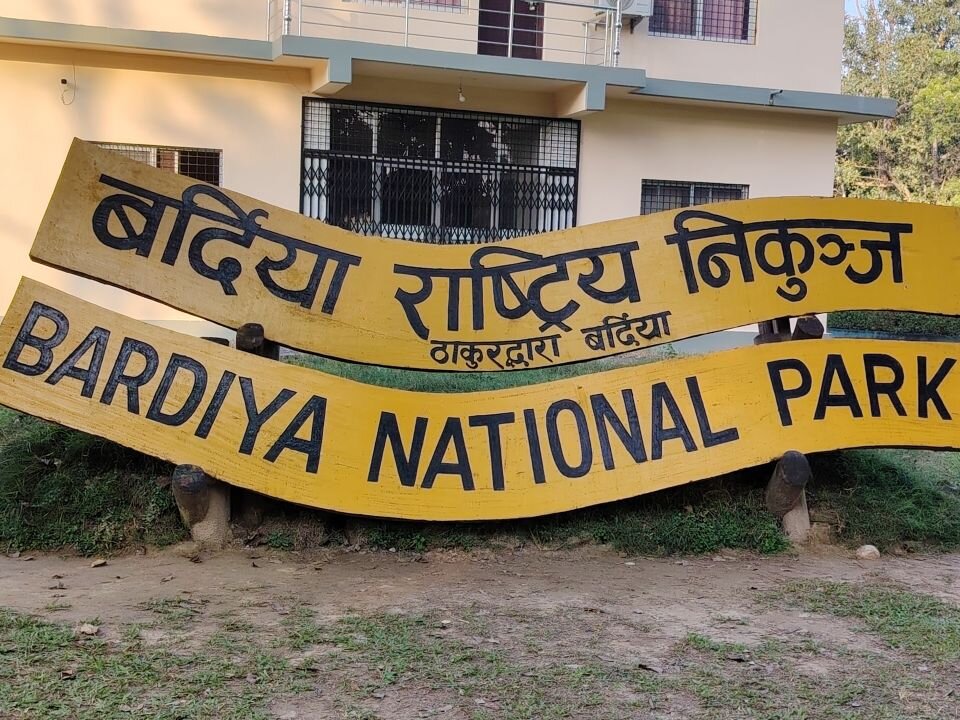Premium Only Content

Bardiya National Park
Bardiya National Park, situated in the western Terai region of Nepal, is one of the country’s most extensive and ecologically diverse protected areas. Covering an area of approximately 968 square kilometers, the park lies in Bardiya District of Lumbini Province and was officially established in 1988. Before its designation as a national park, the area was a royal hunting reserve known as the Bardiya Wildlife Reserve, which was created in 1976. Its transformation into a national park marked a significant milestone in Nepal’s efforts to conserve the rich biodiversity of the lowland Terai ecosystem.
The park is bordered by the Karnali River to the west, while the Babai River flows through its core, creating a mosaic of habitats that support a wide variety of flora and fauna. The landscape is dominated by dense sal (Shorea robusta) forests, interspersed with grasslands, riverine forests, and wetlands. This combination of habitats provides a refuge for some of the most endangered wildlife species in Asia. Bardiya is particularly famous for its population of Royal Bengal tigers, one-horned rhinoceroses, Asian elephants, gharial crocodiles, and Gangetic dolphins. It also shelters more than 400 species of birds, including the great hornbill, lesser adjutant stork, and bengal florican.
In addition to its ecological importance, Bardiya National Park holds significant cultural and social value. The area surrounding the park is home to the Tharu community, an indigenous ethnic group known for their unique traditions, dances, and harmonious relationship with nature. Their traditional lifestyle and knowledge systems contribute to sustainable resource use and help maintain the ecological balance of the region.
Bardiya offers rich opportunities for eco-tourism and wildlife observation, with jungle safaris, rafting on the Karnali River, and birdwatching among the most popular activities. Visitors may also encounter species such as spotted deer, wild boar, swamp deer, blue bull, and various species of monkeys. Despite its natural beauty and abundance of wildlife, Bardiya remains less commercialized than Chitwan National Park, giving visitors a more tranquil and authentic wilderness experience.
Today, Bardiya National Park stands as a symbol of Nepal’s commitment to biodiversity conservation and sustainable development. Through continued efforts in anti-poaching, community involvement, and habitat restoration, the park not only protects rare species but also supports the livelihoods and cultural heritage of local people. It remains a vital part of Nepal’s natural heritage — a sanctuary of life, culture, and beauty where the rhythm of the wild still beats strong.
-
 1:27:57
1:27:57
Tucker Carlson
2 hours agoTucker and Col. MacGregor Warn How Neocons Are Exploiting the Drug Crisis to Drag America Into War
12.9K39 -

Badlands Media
7 hours agoDevolution Power Hour Ep. 402
62.6K45 -
 2:05:48
2:05:48
Inverted World Live
6 hours agoUFO Seen Over Tokyo During Trump Visit | Ep. 132
55.4K10 -
 2:54:08
2:54:08
TimcastIRL
4 hours agoDemocrat FEDERALLY INDICTED For Obstructing ICE Agents In Chicago | Timcast IRL
194K84 -
 LIVE
LIVE
SpartakusLIVE
6 hours agoNEW - REDSEC Battle Royale || The Duke of Nuke CONQUERS ALL
349 watching -
 LIVE
LIVE
PandaSub2000
1 day agoLIVE 10:30pm ET | NINTENDO DS Night
347 watching -
 LIVE
LIVE
Alex Zedra
3 hours agoLIVE! Battlefield RecSec
274 watching -
 1:26:50
1:26:50
The Quartering
4 hours agoErika Kirk Threatened, SNAP Riots Near, & New AstroTurfed Woke Lib Influencer
41.7K18 -
 29:24
29:24
Glenn Greenwald
6 hours agoSen. Rand Paul on Venezuela Regime Change, the New War on Drugs, MAGA Rifts, and Attacks from Trump | SYSTEM UPDATE #539
112K106 -
 1:45:39
1:45:39
Badlands Media
18 hours agoAltered State S4 Ep. 3
49.8K25